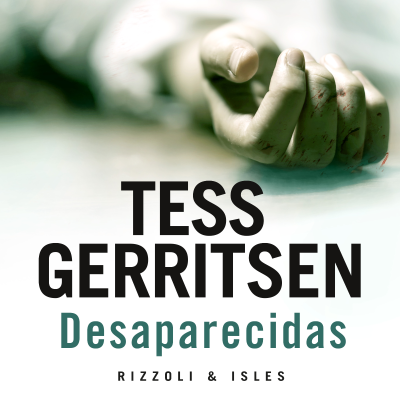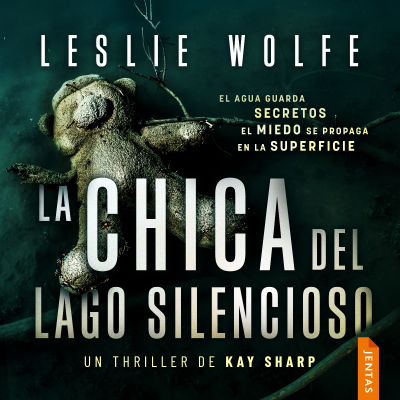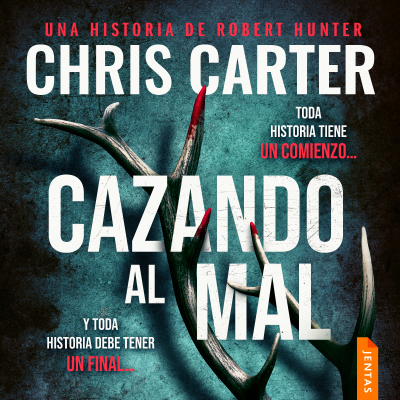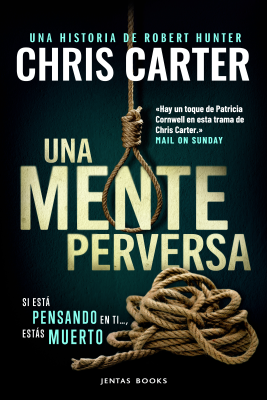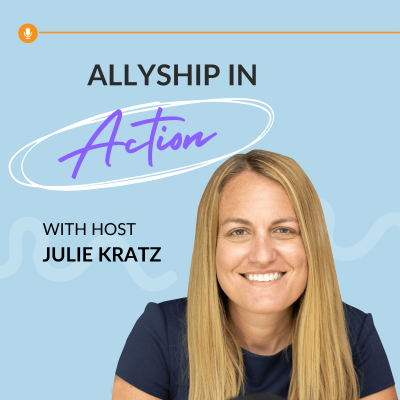
Allyship in Action
inglés
Negocios
Disfruta 30 días gratis
4,99 € / mes después de la prueba.Cancela cuando quieras.
- 20 horas de audiolibros / mes
- Podcasts solo en Podimo
- Podcast gratuitos
Acerca de Allyship in Action
Allyship doesn't happen by accident. It requires intention, action, and consistency. The goal of Allyship in Action is to provide practical, actionable tools from inclusion experts that people can be more actionable allies at work.
Todos los episodios
344 episodios329: How to Use Validation to Revolutionize Your Relationships and Leadership Influence with Dr. Caroline Fleck
In this episode, I'm sitting down with the incredible Dr. Caroline Fleck, clinical psychologist and author of the transformative new book, Validation. We often talk about allyship as a series of seemingly small, intentional actions, and some of the most profound work happens in the small, everyday moments of how we see and hear one another. Dr. Fleck joins me to pull back the curtain on validation—a skill that is frequently misunderstood but serves as a fundamental prerequisite for belonging and true connection. We dive into her "Validation Ladder" and explore how these techniques can revolutionize not just our corporate cultures, but our personal relationships and how we show up for ourselves. 3 Key Takeaways from Our Conversation: * Validation is Not Agreement or Praise: One of the biggest hurdles to being a good ally is the fear that validating a perspective means you agree with it. Dr. Fleck clarifies that validation is about acknowledging the truth in someone's experience—showing them you're there, you get it, and you care—without needing to agree with their logic or offer a "good job." * The "Validation Ladder" Framework: Effective validation is a tiered process. It starts at base camp with mindfulness (being fully present), moves through understanding (equalizing and contextualizing why someone feels the way they do), and reaches the top at empathy (authentically emoting and taking supportive action). * The Power of Self-Validation: Especially for marginalized groups who have been conditioned to "cover" or minimize their feelings to fit in, practicing self-validation is an essential act of reclamation. Using these tools introspectively allows us to honor our own experiences as valid, which is the first step toward showing up as a confident, authentic leader. Follow Dr. Caroline Fleck and get her book at https://drcarolinefleck.com/.
328: How Equality Wins, the New Vision for Inclusion with David Glasgow and Kenji Yoshino
This week, I welcome David Glasgow and Kenji Yoshino, co-authors of the new book How Equality Wins: A New Vision for an Inclusive America. As leaders of the Meltzer Center for Diversity, Inclusion, and Belonging at NYU School of Law, David and Kenji discuss the legal and political landscape of Diversity, Equity, and Inclusion (DEI) following the 2023 Supreme Court decision on affirmative action. They provide a practical roadmap for leaders to advance equality while navigating legal risks and political backlash. My Key Takeaways * The "Three Ps" of Legal Risk: A DEI program is generally only legally risky if it involves a Preference for a Protected group about a Palpable benefit. If any one of these elements is missing—such as a program that removes bias for everyone rather than creating a preference—it is likely legally permissible. * Leveling vs. Lifting: While "lifting" strategies (like identity-based mentorship) are becoming more legally vulnerable, "leveling" strategies offer a safer and often more effective path. Leveling focuses on systemic changes, such as debiasing performance reviews and implementing objective hiring criteria, which benefit all employees while advancing equity. * The Importance of Supporting Dissent: Effective DEI work requires creating psychological safety where dissenting views can be heard. Suppressing disagreement leads to "preference falsification," where people appear to agree but harbor quiet resentment. Engaging with counter-arguments ultimately builds stronger, more resilient support for inclusion. Follow David and Kenji at https://www.law.nyu.edu/centers/belonging [https://www.law.nyu.edu/centers/belonging] and pre-order their new book at https://www.simonandschuster.com/books/How-Equality-Wins/Kenji-Yoshino/9781668216750 [https://www.simonandschuster.com/books/How-Equality-Wins/Kenji-Yoshino/9781668216750].
327: Leadership Lessons from the Pitch with Ciaran McArdle
In this episode, Ciaran McArdle, CEO of XL Sports World and author of The Soccer of Success, joins Julie Kratz to discuss how the principles of the "beautiful game" can be used to transform corporate leadership. McArdle shares three key strategies for high-performance leadership, drawing parallels between the soccer pitch and the professional workplace: 1. Tailored Leadership: Meet Team Members Where They Are Effective leadership requires a nuanced approach, much like a soccer captain managing a diverse squad. * Individualized Communication: McArdle notes that while one teammate may need direct, vocal feedback to improve performance, another might require a quieter, more supportive "arm around the shoulder". * Psychological Insight: Leaders must understand the unique psyche of each team member to determine the best way to motivate them and demand their best. 2. The "White Line" Concept: Establish Clear Boundaries In soccer, crossing the white line onto the pitch signifies a complete shift in intensity and mindset. * Performance Intensity: While on the "field" (the workplace), teams should maintain high focus and be willing to ask tough questions to drive results. * Switching Off: Equally important is crossing back over that line. McArdle emphasizes that once work is done, leaders must normalize stepping away and focusing on recovery to avoid burnout. 3. The 90-Minute Mindset: Protect Deep Work McArdle introduces a "90-minute mindset" for productivity, mirroring the length of a standard soccer match. * Distraction-Free Focus: He advocates for scheduling 90 minutes of uninterrupted work—phone on airplane mode and emails closed—to tackle high-impact goals. * The "Hattrick of Success": This focus is part of a larger cycle: Plan, Perform, and Recover/Review. Consistent execution in this format allows teams to perform at elite levels without sacrificing long-term mental health. Follow Ciaran McArdle at https://soccerofsuccess.com/.
326: The Engagement Paradox: Why Leaders and Gen Z Are Both Disengaged with Sean D'Arcy
Join us for an insightful conversation on the critical state of workplace culture and talent retention with Sean D'Arcy, Chief Solutions Officer at Kahoot!. Based on their latest research, we explore a startling paradox: many leaders are burned out, and nearly half would give up their title to feel engaged at work. This lack of manager engagement creates a difficult environment for the newest generation, with almost two-thirds of managers finding Gen Z to be the hardest group to engage. Sean D'Arcy dives deep into the findings on both leader burnout and Gen Z's unique needs, covering generational tensions and the path forward. He discusses how to leverage tools and strategies, including game-based learning, to inject fun, social connection, and psychological safety back into the workplace, turning meetings into interactive discussions and fostering a culture where all employees can thrive. Three Key Takeaways for Workplace Culture and Talent Retention * The Engagement Crisis Starts at the Top: Nearly half of leaders would trade their title just to feel more engaged at work, with a third admitting to feeling burned out. This disengagement at the leadership level makes it difficult to effectively engage and retain employees, highlighting a lack of investment in the training and tools managers need to succeed. * Gen Z Needs Foundational Skills and Belonging: Gen Z is the most difficult generation to engage, with two-thirds of managers citing them as the hardest group to motivate. They often feel "out of their depth" regarding basic workplace operating systems (like email etiquette and meeting facilitation) and crave more structured, gamified learning and real-time feedback that mimics their prior educational experiences. Furthermore, they value strong relationships and a sense of belonging/psychological safety, which is essential for talent retention. * Interactive Learning and Culture Building are the Solution: A key strategy for improving workplace culture and talent retention is integrating interactive, gamified tools to facilitate social connection and effective communication. By turning one-way presentations into engaging discussions, companies can break the ice, democratize participation, and gather real-time analytics to understand where employees need more support. This shift supports the inclusive, feedback-driven culture that Gen Z, in particular, expects. Get the full report at: https://kahoot.com/business/workplace-engagement-report-2025/
325: When the Business Baby Meets the Biological Baby with Hana Milanov and Amelie Pahl
This week, I welcome researchers Hana Milanov and Amelie Pahl on their work exploring entrepreneurship through the lens of first-time parents. The researchers interviewed founders who were already deeply identified with their "venture baby" before having a "biological baby," challenging the common narrative that parenthood diminishes career success. They discovered that instead of being a hindrance, parenthood can be a catalyst for positive change in a founder's business and their professional growth. The key finding revolves around two main strategies founders adopt: * Founder Firewalling: Keeping the parental and founder roles separate to protect the founder's professional identity and commitment. This often drives professionalization, like delegating or hiring management, to maintain separation. * Founder Fusing: Integrating the two roles by allowing the new values and behaviors learned as a parent (like empathy and patience) to redefine and enhance the founder's role. This often leads to a more flexible and human-centered workplace culture. The surprising takeaway? The decision to integrate or separate was not defined by gender but by the individual's approach, with roughly a 50/50 split between the two strategies in their study of high-impact founders. 🌟 Three Takeaways for Workplace Culture and Talent Retention This research provides valuable insights for companies looking to improve their workplace culture and retain top talent, especially parents: 1. Parenthood can be a catalyst for professionalization, enhancing retention: For "firewalling" founders, the need to protect their parental time often led to delegating operational tasks and building out middle management. This forced professionalization of the venture, which, in turn, can create a clearer path for other talented employees to grow and take on more responsibility, serving as a powerful talent retention mechanism. 2. Parental skills enrich leadership and workplace culture: Founders who chose the "fusing" approach brought empathy, better project management, and flexibility from their parental role into the workplace. This shift manifested as a more human-centered company culture that prioritized well-being and flexibility, which are critical factors for retaining all employees, not just parents. 3. Dismantle the "fear factor" to retain high-impact talent: A major hurdle, particularly for women, is the fear that starting a family will diminish their founder role or career trajectory. The research demonstrates that this fear is unwarranted, showing that commitment to the venture often strengthens post-parenthood. By normalizing and openly discussing the integration of family and career (like the Open Source Nanny resource mentioned), companies can retain founders and high-potential employees who might otherwise choose to delay or abandon their career growth.
Elige tu suscripción
Premium
20 horas de audiolibros
Podcasts solo en Podimo
Podcast gratuitos
Cancela cuando quieras
Disfruta 30 días gratis
Después 4,99 € / mes
Premium Plus
100 horas de audiolibros
Podcasts solo en Podimo
Podcast gratuitos
Cancela cuando quieras
Disfruta 30 días gratis
Después 9,99 € / mes
Disfruta 30 días gratis. 4,99 € / mes después de la prueba. Cancela cuando quieras.
















